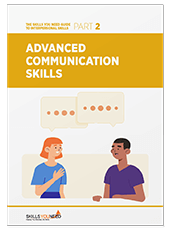Decision-Making and Problem-Solving
See also: Transferable SkillsMaking decisions and solving problems are two key areas in life, whether you are at home or at work. Whatever you’re doing, and wherever you are, you are faced with countless decisions and problems, both small and large, every day.
Many decisions and problems are so small that we may not even notice them. Even small decisions, however, can be overwhelming to some people. They may come to a halt as they consider their dilemma and try to decide what to do.
Small and Large Decisions
In your day-to-day life you're likely to encounter numerous 'small decisions', including, for example:
Tea or coffee?
What shall I have in my sandwich? Or should I have a salad instead today?
What shall I wear today?
Larger decisions may occur less frequently but may include:
Should we repaint the kitchen? If so, what colour?
Should we relocate?
Should I propose to my partner? Do I really want to spend the rest of my life with him/her?
These decisions, and others like them, may take considerable time and effort to make.
The relationship between decision-making and problem-solving is complex. Decision-making is perhaps best thought of as a key part of problem-solving: one part of the overall process.
Our approach at Skills You Need is to set out a framework to help guide you through the decision-making process. You won’t always need to use the whole framework, or even use it at all, but you may find it useful if you are a bit ‘stuck’ and need something to help you make a difficult decision.
Decision Making
This page provides information about ways of making a decision, including basing it on logic or emotion (‘gut feeling’). It also explains what can stop you making an effective decision, including too much or too little information, and not really caring about the outcome.
This page sets out one possible framework for decision-making.
The framework described is quite extensive, and may seem quite formal. But it is also a helpful process to run through in a briefer form, for smaller problems, as it will help you to make sure that you really do have all the information that you need.
Problem Solving
Introduction to Problem-Solving
This page provides a general introduction to the idea of problem-solving. It explores the idea of goals (things that you want to achieve) and barriers (things that may prevent you from achieving your goals), and explains the problem-solving process at a broad level.
Identifying and Structuring Problems
The first stage in solving any problem is to identify it, and then break it down into its component parts. Even the biggest, most intractable-seeming problems, can become much more manageable if they are broken down into smaller parts. This page provides some advice about techniques you can use to do so.
Investigating Ideas and Solutions
Sometimes, the possible options to address your problem are obvious. At other times, you may need to involve others, or think more laterally to find alternatives. This page explains some principles, and some tools and techniques to help you do so.
Implementing a Solution and Feedback
Having generated solutions, you need to decide which one to take, which is where decision-making meets problem-solving. But once decided, there is another step: to deliver on your decision, and then see if your chosen solution works. This page helps you through this process.
‘Social’ problems are those that we encounter in everyday life, including money trouble, problems with other people, health problems and crime. These problems, like any others, are best solved using a framework to identify the problem, work out the options for addressing it, and then deciding which option to use.
This page provides more information about the key skills needed for practical problem-solving in real life.
Further Reading from Skills You Need
The Skills You Need Guide to Interpersonal Skills eBooks.
Develop your interpersonal skills with our series of eBooks. Learn about and improve your communication skills, tackle conflict resolution, mediate in difficult situations, and develop your emotional intelligence.
Guiding you through the key skills needed in life
As always at Skills You Need, our approach to these key skills is to provide practical ways to manage the process, and to develop your skills.
Neither problem-solving nor decision-making is an intrinsically difficult process and we hope you will find our pages useful in developing your skills.



